What if I told you there's a suite of AI tools ready to revolutionize your workday in ways you never imagined? Yes, it’s possible, and it’s happening now.
As businesses around the globe grapple with efficiency demands, these AI tools are more crucial than ever. They automate tasks that used to take hours, all thanks to groundbreaking 2025 advancements.
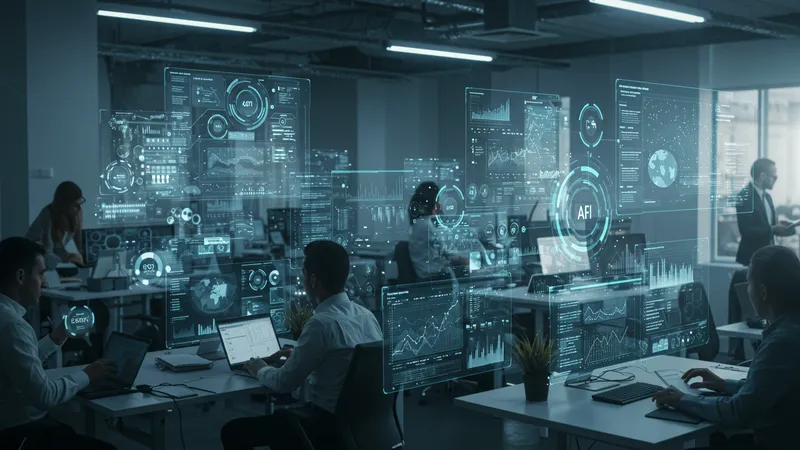
Did you know that AI isn't just about replacing human jobs? In fact, it's creating opportunities in unexpected ways. AI tools now assist in emotional labor such as customer service, transcending traditional roles. These digital assistants are so intelligent that they read, interpret, and respond to emotional cues, remarkably. However, their ability to predict and preempt needs before you even articulate them is what truly astounds professionals.
But that’s not even the wildest part…
Consider this: AI’s precision is transforming industries by monopolizing tasks that once overwhelmed human capacity. For instance, medical diagnostics powered by AI achieve accuracy with fewer resources, leaving experts astounded. But what if I told you this is just the beginning? On the horizon are tools that foresee major changes, possibly predicting market shifts and global trends before they occur, giving businesses a head start they desperately need.
What happens next shocked even the experts…
The automation trend is not just a silent revolution; it’s uprooting traditional workweek norms. With AI tools at the forefront, employees can now accomplish a week's worth of tasks in just days, leading many organizations to consider a four-day work week. Surprisingly, this leads not only to improved productivity but also increased job satisfaction. The time savings allow employees to focus on creative problem-solving or strategic planning, roles that AI is not yet ready to replace. But there’s one more twist…
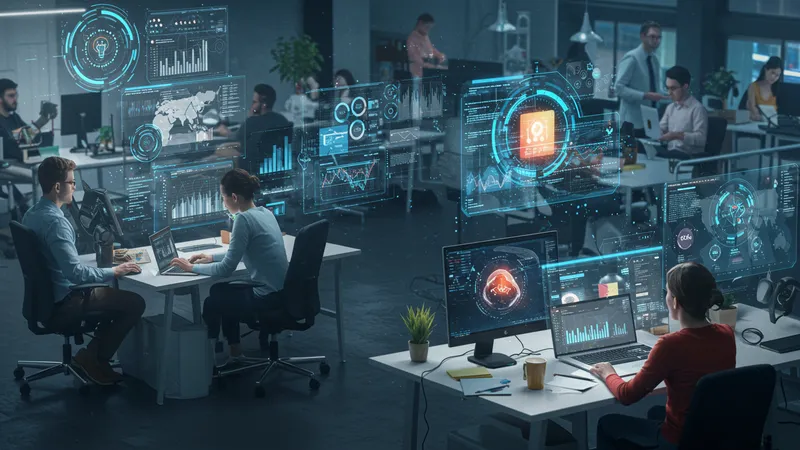
Corporates are not the only benefactors of this AI windfall; freelancers and small business owners are leveraging AI for unprecedented growth. With access to affordable and sophisticated tools, they're on par with large corporations. Such democratization of technology ensures that innovation and competition can come from anywhere, balancing the scales in a previously imbalanced corporate arena.
Network effects play a crucial role here. As more entities adopt AI tools, the systems become smarter and more efficient. This interconnectedness results in vast improvements in accuracy and speed. But what’s even more intriguing is how these advances in technology are powered by personal data that users willingly share to improve AI's understanding and responsiveness.
But what you read next might change how you see this forever…
While AI tools are readily embraced in formal sectors, their infiltration into everyday life is subtle yet profound. Take, for instance, AI in virtual personal assistants that manage schedules and answer queries, unbeknownst to users, they're also learning and evolving. This silent tutor gradually adapts, enhancing its own capabilities as well as users' lives, increasing our dependency on these invisible helpers.
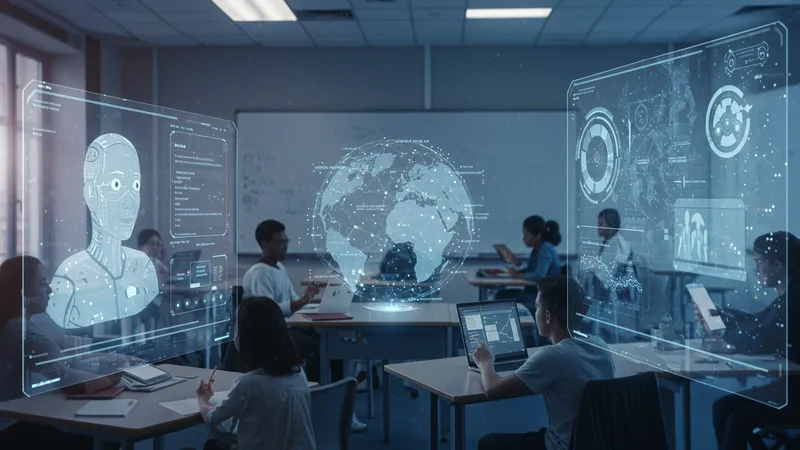
But what's really eye-catching is how AI is re-shaping education. Virtual tutors now employ adaptive learning that gauges student understanding and modifies instruction in real-time. Transformative educational experiences once isolated to physical classrooms are now accessible globally. Even the illusion of individualized attention, made possible by AI, is redefining teaching methodologies daily.
And then there’s AI in entertainment. Streaming services use AI to predict and recommend content with uncanny accuracy, personalizing every user's experience. Algorithms analyze every scroll and click, crafting an entertainment journey that appears to understand us better than we know ourselves. Isn't it astonishing how deeply AI penetrates the ordinary yet transforms it into extraordinary?
This isn’t just an incremental improvement—it’s a paradigm shift…
AI in healthcare does more than reduce patient wait times; it anticipates illness before symptoms appear. Through analysis of comprehensive patient data, AI tools can spot patterns human eyes might miss, creating opportunities for preventative treatment. Hospitals armed with these tools show improved patient outcomes, demonstrating AI’s potential to save lives before medical intervention is required.
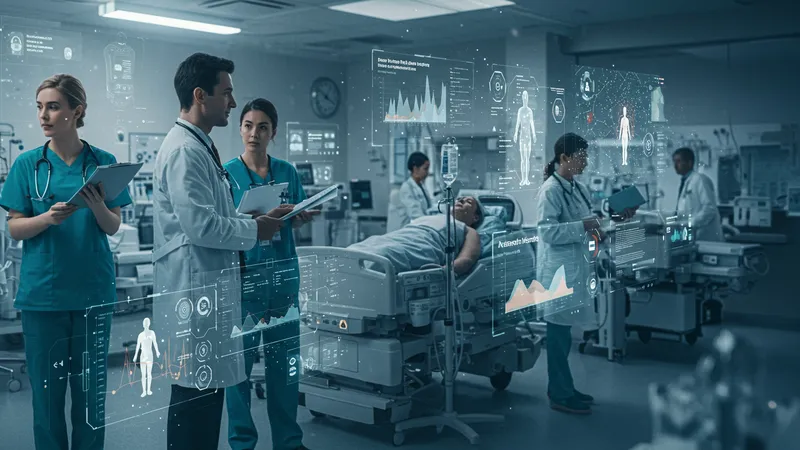
Interestingly, AI isn’t just for diagnostics. It enhances patient care by streamlining administrative tasks traditionally bogged down by bureaucracy. Nurses and doctors now have more time for direct patient interaction, improving the quality of care and satisfaction. These efficiency gains are unmatched, bridging the gap between clinical demand and limited resources.
Expanding further, AI in drug development accelerates research and reduces costs significantly. Predictive analytics and simulations offer insights without the traditional trial-and-error approach, pushing new treatments to market faster than ever before. But AI’s role doesn’t end there; it’s also reshaping therapeutic practices by tailoring them to individual genetic profiles.
The transformation isn't just promising, it's imminent, and there’s more to discover…
Who would have guessed that AI would play a crucial role in cybersecurity? Sophisticated algorithms detect threats and anomalies in real-time, offering protection even before breaches can occur. The leap in cybersecurity marks a pivotal moment when even the most resilient defenses are necessary, and AI stands at that frontier.
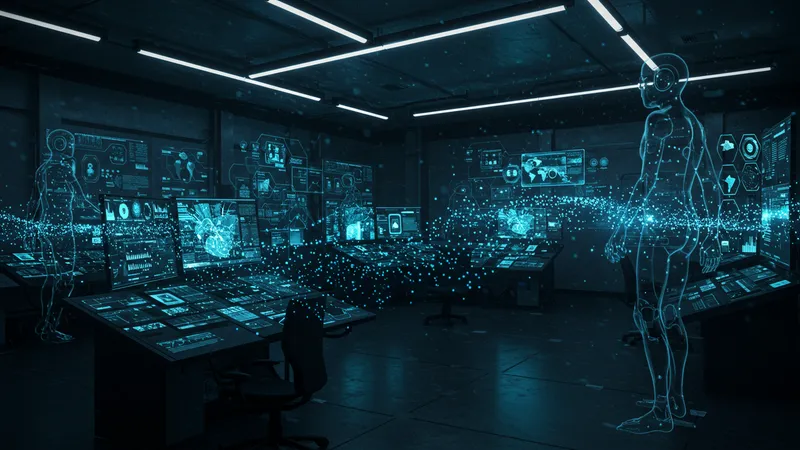
An outstanding aspect of AI in this sector is its ability to learn from prior attacks. This adaptive learning means that each new encounter makes the system stronger, altering security protocols and response times. Organizations are increasingly reluctant to rely solely on human vigilance, recognizing AI's capability to predict and prevent security incidents.
Furthermore, AI’s ability to proactively counter threats with little human oversight brings a strategic advantage to industries prone to hacking. Compliance monitoring, data encryption, anomaly detection—AI executes these with precision, transforming how security landscapes are governed. It is an ally by design, safeguarding assets with relentless efficiency.
But this is just the surface—there’s another dimension that will defy expectations…
The moral considerations of AI in workforce automation cannot be underestimated. As AI tools become more prevalent, they raise ethical questions about job displacement and the widening gap between the technological haves and have-nots. It’s crucial to navigate these challenges, fostering an inclusive environment where technology contributes to equity rather than division.
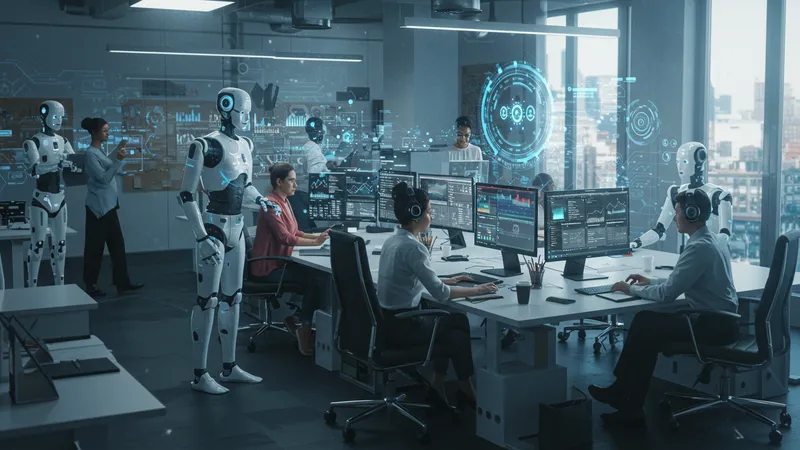
Despite the challenges, some argue that automation liberates human potential rather than restricting it. By handling monotonous tasks, AI allows humans to engage in more meaningful work, which was previously impractical. Here, creativity flourishes as technological and human collaboration carve out a future of bold possibilities.
Moreover, the ethical conversations extend to data privacy concerns. With AI’s hunger for data, nations worldwide grapple with crafting regulations that protect individuals while promoting innovation. It’s a tightrope walk between privacy, protection, and progress but necessary to ensure that AI serves humanity justly.
And as we explore these themes, a new paradigm of responsibility emerges, one that promises yet another layer of complexity…
Envision AI as an unsung hero in the environmental movement, countering climate change with efficiency and precision. By analyzing vast swathes of data, AI systems predict environmental shifts and propose actionable solutions to mitigate impacts. Sustainability initiatives are now data-driven, optimizing energy consumption and reducing waste.
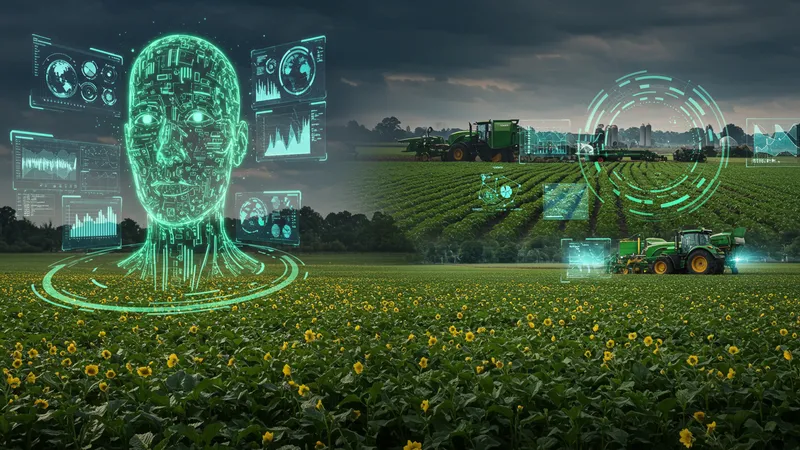
Interestingly, the agricultural sector benefits significantly from these advancements. AI-powered models predict weather patterns and offer crop optimization strategies, enhancing yield and ensuring food security. These tools streamline farming practices, marrying age-old traditions with futuristic technology seamlessly.
AI’s potential in conservation efforts is equally profound. Systems track endangered species populations and their habitats, advising conservationists with extraordinary preciseness. Such interventions are not only crucial for biodiversity but also reinforce AI's role as a guardian of our planet’s future.
As these ecological applications expand, an unexpected opportunity for systemic change emerges. What follows might just redefine conservation strategies…
The evolution of supply chains with AI is making waves in logistics and distribution networks. These tools predict customer demands with stunning accuracy, ensuring that inventory levels precisely match consumer needs. This minimizes waste and enhances efficiency, optimizing every facet of the distribution process.
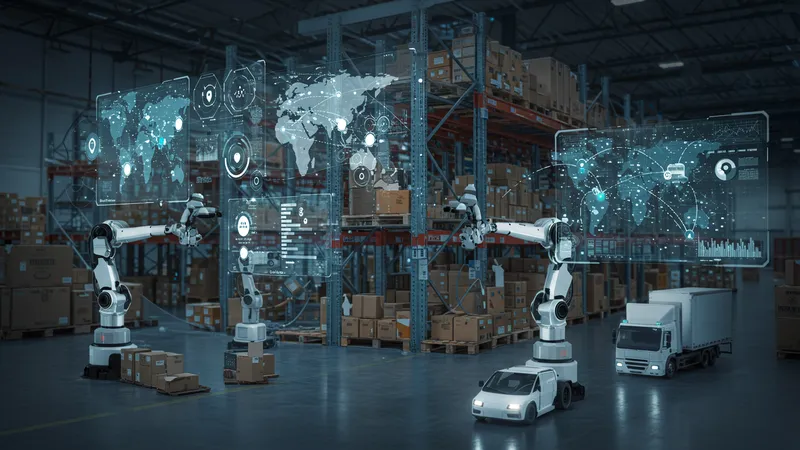
But it doesn’t stop at inventory management. AI analyzes transportation logistics, identifying the fastest routes and reducing delivery times. Every shipment is a calculated move, contributing to economic and environmental benefits. It’s an orchestration of efficiency and sustainability—an accomplishment only AI can achieve.
A synergistic collaboration emerges as AI and IoT create smart warehouses. Automated systems handle goods systematically, reducing human error and increasing transaction speeds. Companies that embrace these intelligent systems witness reduced overheads and improved customer satisfaction.
This new frontier promises a revelation that’ll shake the logistics world to its core…
In finance, AI is the game-changer. Its algorithms identify patterns in stock markets, offering predictions that were once unfathomable. Investors now rely on AI for insights into assets, risks, and opportunities, revolutionizing financial decision-making with unparalleled efficiency.
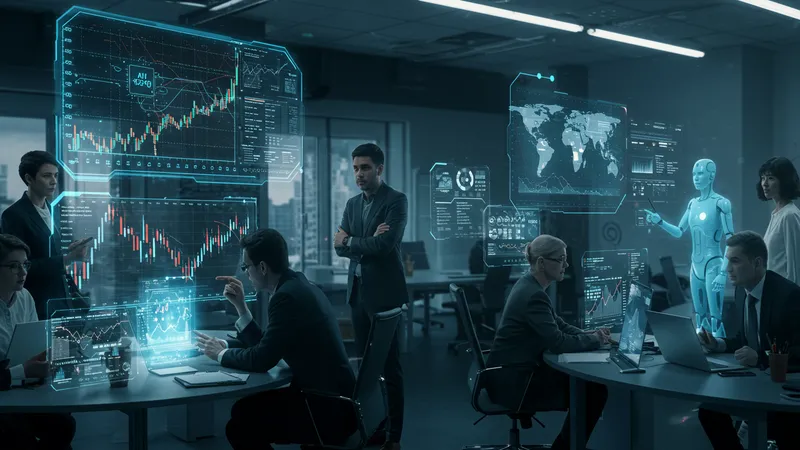
AI-powered bots offer a transformative customer experience in fintech, managing inquiries, offering advice, and orchestrating financial planning. These virtual assistants exemplify the seamless integration of technology into human activities, changing client engagement dynamics.
Risk management is another area where AI excels. Its predictive analytics models assess potential risks and create contingency plans far beyond human capabilities, providing financial institutions with a safety net against plausible market upheavals.
The implications? They're wide-reaching, with the potential to redefine value assessments and financial growth trajectories. And yet, a deeper conversation about societal implications continues…
AI is shaking up the legal industry by automating mundane tasks like contract analysis and legal research. Lawyers find themselves liberated, focusing more on strategic advisory than repetitive legwork. The shift is redefining how legal services are delivered, emphasizing speed and accuracy.
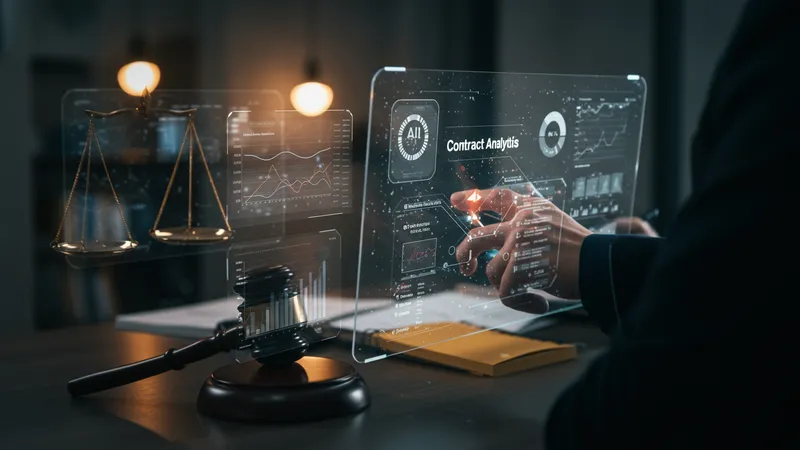
Moreover, predictive analytics in AI offers remarkable insights into case outcomes, giving attorneys an edge in courtrooms. It enables a more data-driven approach to legal proceedings, which is rapidly gaining traction. This evolution could lead to fairer judgements through the provision of consistent and objective evidential support.
The digital transformation extends to compliance and regulatory sectors. AI ensures adherence to regulations seamlessly, reducing the risk of oversight. Law firms see increased productivity as automation handles labor-intensive tasks with incredible precision.
But, as this dynamic landscape evolves, new questions of accountability and fidelity arise…
AI's power isn't limited to user convenience—it reaches into market dynamics, influencing product trends and consumer behavior. By evaluating browsing and purchase data, AI tailors marketing strategies with pinpoint accuracy, reshaping market competition with some surprising results.
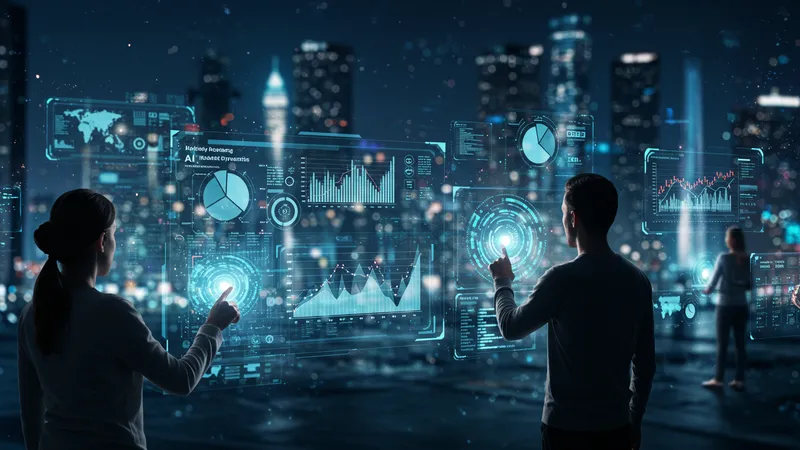
Businesses deploy AI to dissect consumer sentiment and forecast engagement, a feature that outpaces antiquated marketing methods. Suddenly, corporate campaigns are no longer guesswork; they're scientifically calculated endeavors promising greater efficacy and ROI.
The more data AI processes, the more it improves, creating marketing strategies eerily in tune with consumer thoughts. This synchronicity leads to the offering of personalized experiences, making customers feel understood and valued. It's a phenomenon that might redefine brand loyalty.
Industry experts now ponder new strategies to harness this potential responsibly, ensuring ethical marketing practices while realizing unprecedented growth…
AI is fundamentally altering how we interact with the digital world by enhancing connectivity. The networks of tomorrow will be faster and smarter, thanks to AI’s ability to dynamically manage bandwidth and optimize data flow, eliminating inefficiencies.
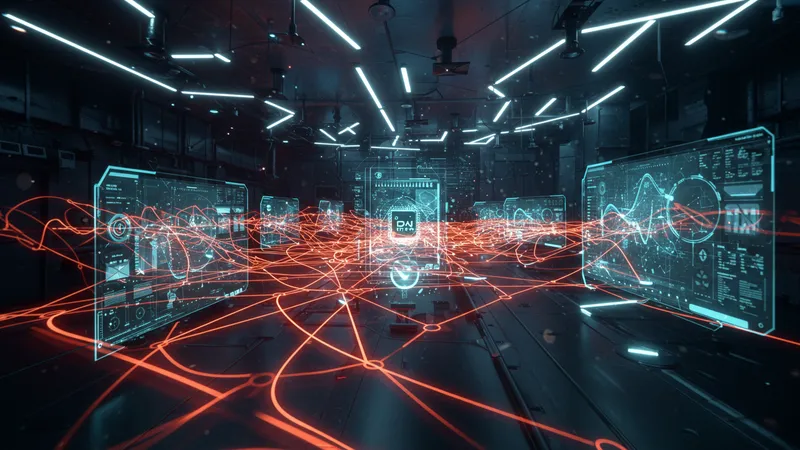
Imagine AI-driven networks that repair themselves, adjusting configurations to prevent downtime. This responsiveness revolutionizes digital infrastructure, leading to more reliable internet services worldwide. It's a breakthrough that tech giants keenly pursue.
Advanced AI algorithms propel innovations in telecoms, managing large-scale operations with ease. Subscribers experience reduction in lags and disruptions, facilitating seamless digital communications. It’s the dawn of a new connectivity era, where AI sustains our ever-growing demand for information.
But as we scratch the surface, the potential for deeper integration explodes new potentials...other advanced tech marvels are emergent...
AI has a surprisingly tender touch in creative spaces, acting as both a muse and an enhancer of human creativity. From composing music to editing films, AI tools give artists the freedom to explore realms they dared not to dream of before.
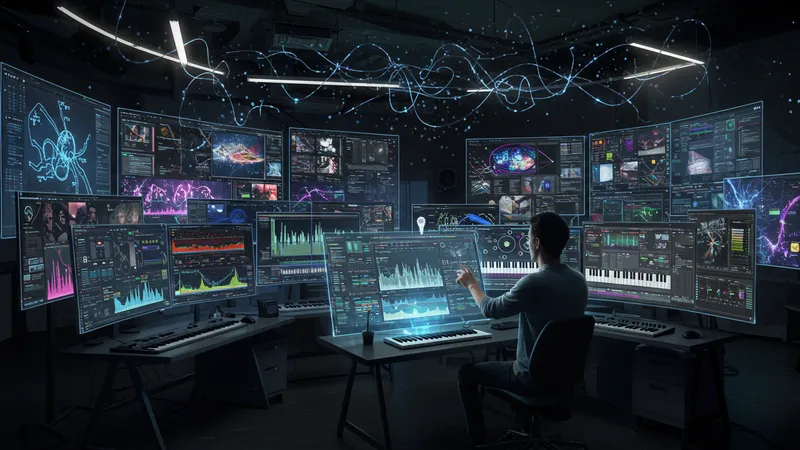
It’s fascinating to see AI develop personalized content, toying with user interactions to evolve storytelling. Content that reacts and adapts to engagement patterns creates immersive experiences unheard of in conventional creative circles.
Tacked onto design platforms, AI suggests smart design choices, helping even beginners venture into robust creative industries. This accessibility is reshaping how art and design are cultivated, blurring the lines between human creativity and silicon ingenuity.
Beyond these endeavors, AI is on the cusp of yet another innovative leap—fostering cultural collaboration and cradling artistic dialogues between diverse communities across digital landscapes…
Remote work catalyzed by the pandemic finds new energy through AI, buoying the rise of digital nomads worldwide. These tools facilitate productivity in any corner of the globe, redefining office spaces and work-life expectations once tethered to physical locations.
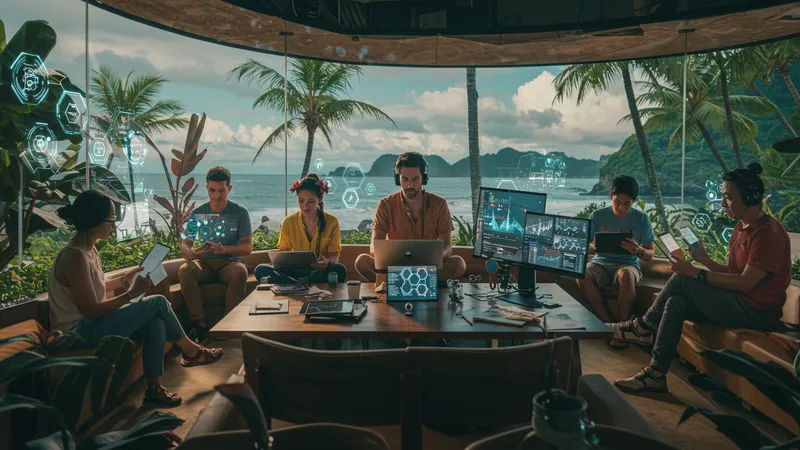
Workflows optimized by AI ensure remote workers remain connected and efficient, catalyzing a community bound not by geography but by shared digital ethos. The remote work model, no longer lonely or isolated, blossoms with collaborative networks and shared resources.
Beyond icons of independence, digital nomads epitomize the future workforce. AI plays a crucial role in supporting this transition, giving rise to flexible arrangements and paradigm shifts in career planning. A new lifestyle ethos emerges, daring to challenge traditional employment norms.
It’s a fascinating world rich in potential, yet one that suggests an exciting future lurking just over the horizon...
The changes wrought by AI are profound, challenging the boundaries between human capacity and technological advancement. As ubiquitous as AI has become, its societal implications grow more pronounced, leading to debates on its transformative power and its potential to both unify and divide.
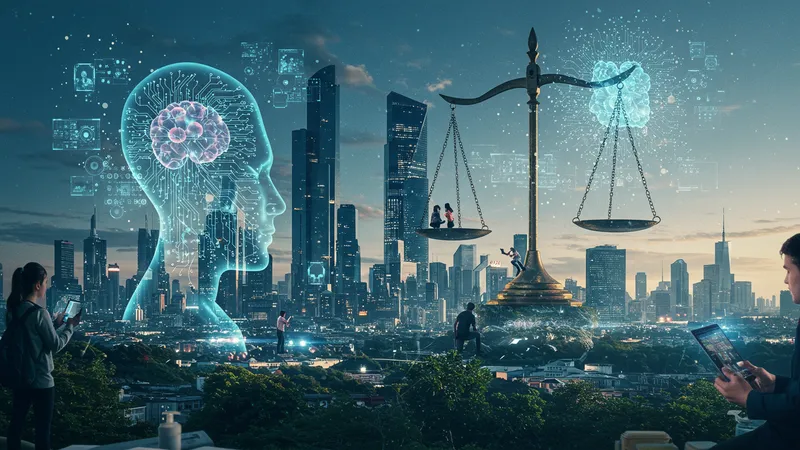
At its heart, the narrative posits whether AI will continue to be an extension of human capabilities or herald an entirely new intelligence. The choices and regulations we decide upon today will shape this guiding trajectory for decades to follow.
Community leaders, governments, and technologists must collaborate to fully appreciate AI’s stoic influence. Only through these joint efforts can we forge a future where AI uplifts societal progress rather than hinders it.
This journey of discovery is ongoing; many lessons are yet to be unraveled. But as we confront these questions, we turn our gaze to the legacy we desire to inherit and pass on…
The transformative power of AI in 2025 manifests itself in unpredictable ways, reshaping industries, lifestyles, and even how we define work and creativity. With each revelation, AI exposes our insecurities and ambitions, prompting a collective reckoning.
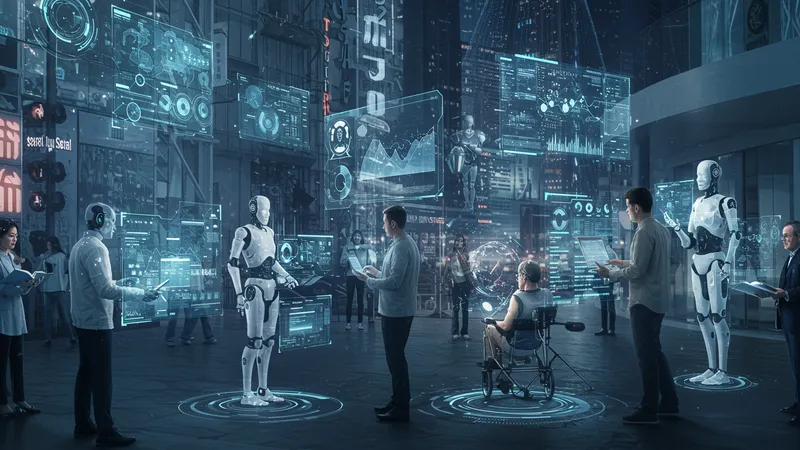
Interestingly, where AI leads us is not solely a tale of technology but an epic of human adaptability and resilience. This symbiotic relationship promises possibilities beyond imagination, bound only by the extent of our willingness to innovate responsibly and inclusively.
Thus unfolds a saga where our technology mirrors our values and aspirations. As the narratives evolve, they call on us to shape the final chapters wisely. Equipped with knowledge and foresight, we stand ready to explore what AI’s future holds.
This is only the beginning—AI’s horizon invites us closer, where secrets lie in wait, tantalizingly out of reach but ever promising. What’s next isn’t just a question; it's an invitation…
The advancements in AI have only just begun to reshape our understanding of productivity, creativity, and connectivity. We stand on the precipice of a world where AI doesn't just automate but amplifies human potential, redefining our reality. It's time to embrace the change and prepare for a future that will be driven by both machine intelligence and human creativity. The call to action is clear: Share this journey, work collaboratively, and together we can sketch the future we wish to inhabit. By spreading the word, you contribute to a transformative narrative that paves the way for innovation.